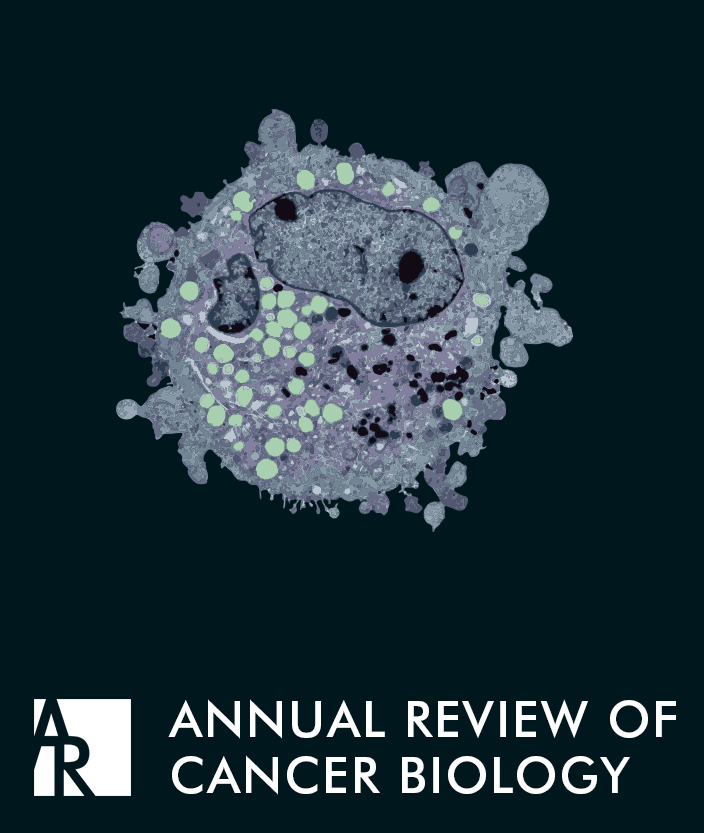Epacadostat治疗黑色素瘤失败后,IDO1抑制剂有临床前景吗?
IF 4.7
2区 医学
Q1 ONCOLOGY
Annual Review of Cancer Biology-Series
Pub Date : 2020-03-09
DOI:10.1146/annurev-cancerbio-030419-033635
引用次数: 104
摘要
吲哚胺-2,3-双加氧酶1(IDO1)通过酶促降解T细胞活性所需的色氨酸并产生犬尿氨酸,从而促进肿瘤免疫抑制。小分子抑制剂,如epacadostat,已被开发用于阻断IDO1的活性。在临床前模型中,它们可以恢复抗肿瘤T细胞免疫,并与免疫检查点抑制剂或癌症疫苗协同作用。基于早期试验中令人鼓舞的临床结果,启动了一项针对转移性黑色素瘤的随机III期研究(ECHO-301/KN-252),以测试在pembrolizumab参考疗法中添加依帕洛司他的益处。结果是否定的。我们简要回顾了在癌症患者中研究依帕司他的临床试验,并讨论了这种负面结果的可能解释。最后,我们提出了恢复靶向IDO1途径的化合物临床开发的途径,在我们看来,IDO1通路仍然是癌症免疫疗法的一个有吸引力的靶点。本文章由计算机程序翻译,如有差异,请以英文原文为准。
Is There a Clinical Future for IDO1 Inhibitors After the Failure of Epacadostat in Melanoma?
Indoleamine-2,3 dioxygenase 1 (IDO1) contributes to tumor immunosuppression by enzymatically degrading tryptophan, which is required for T cell activity, and producing kynurenine. Small-molecule inhibitors, such as epacadostat, have been developed to block IDO1 activity. In preclinical models, they can restore antitumoral T cell immunity and synergize with immune checkpoint inhibitors or cancer vaccines. Based on encouraging clinical results in early phase trials, a randomized phase III study (ECHO-301/KN-252) was launched in metastatic melanoma to test the benefit of adding epacadostat to the reference pembrolizumab therapy. The result was negative. We briefly review the clinical trials that investigated epacadostat in cancer patients and discuss possible explanations for this negative result. We end by suggesting paths to resume clinical development of compounds targeting the IDO1 pathway, which in our view remains an attractive target for cancer immunotherapy.
求助全文
通过发布文献求助,成功后即可免费获取论文全文。
去求助
来源期刊

Annual Review of Cancer Biology-Series
Medicine-Oncology
CiteScore
14.50
自引率
1.30%
发文量
13
期刊介绍:
The Annual Review of Cancer Biology offers comprehensive reviews on various topics within cancer research, covering pivotal and emerging areas in the field. As our understanding of cancer's fundamental mechanisms deepens and more findings transition into targeted clinical treatments, the journal is structured around three main themes: Cancer Cell Biology, Tumorigenesis and Cancer Progression, and Translational Cancer Science. The current volume of this journal has transitioned from gated to open access through Annual Reviews' Subscribe to Open program, ensuring all articles are published under a CC BY license.
 求助内容:
求助内容: 应助结果提醒方式:
应助结果提醒方式:


